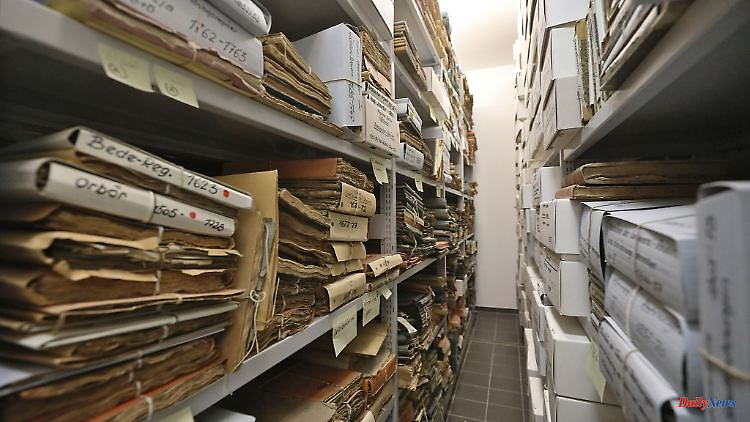After a certain time, documents are archived, for example by authorities. Because certain deadlines are ending, the archives of Mecklenburg-Western Pomerania will receive a particularly large number of documents in the future.
Schwerin/Stralsund (dpa/mv) - The archives in Mecklenburg-Western Pomerania have a lot of work to do in the form of new material due to the end of the storage periods in the administration. "The archive material is only handed over to the archives after the retention periods have expired," said Martin Schoebel, head of the main state archive in Schwerin. "That's a maximum of 30 years, and this period will only expire in the next few years." This has to do with the age of the federal state and the restructuring of the municipalities a good 30 years ago.
"The lion's share of the lore is just getting into the archives." How long the individual institutions would have to deal with it depended on the amount of material and the available staff. "Of course, the archives first have to be evaluated. That means not everything is archive-worthy," explained Schoebel. Material to be archived must then be indexed and made available for use. This takes some time.
"In the country we had around three hundred to three hundred and fifty thousand files that are offered every year," said Schoebel. Depending on the year, 6,000 to 10,000 of these were suitable for the archive. "But if the main waves are only rolling towards us now, one can assume that the numbers will be significantly higher. And of course that puts a lot of strain on the archivists."
Last week, on the occasion of the eighth North German Archives Day in Stralsund, archivists from all over North Germany met. In accordance with the motto "Cultural heritage in the digital world", digitization played a special role. According to the Schwerin Ministry of Science, the approximately 140 colleagues came from state and municipal archives, church and university archives, business archives, public and private institutions.












